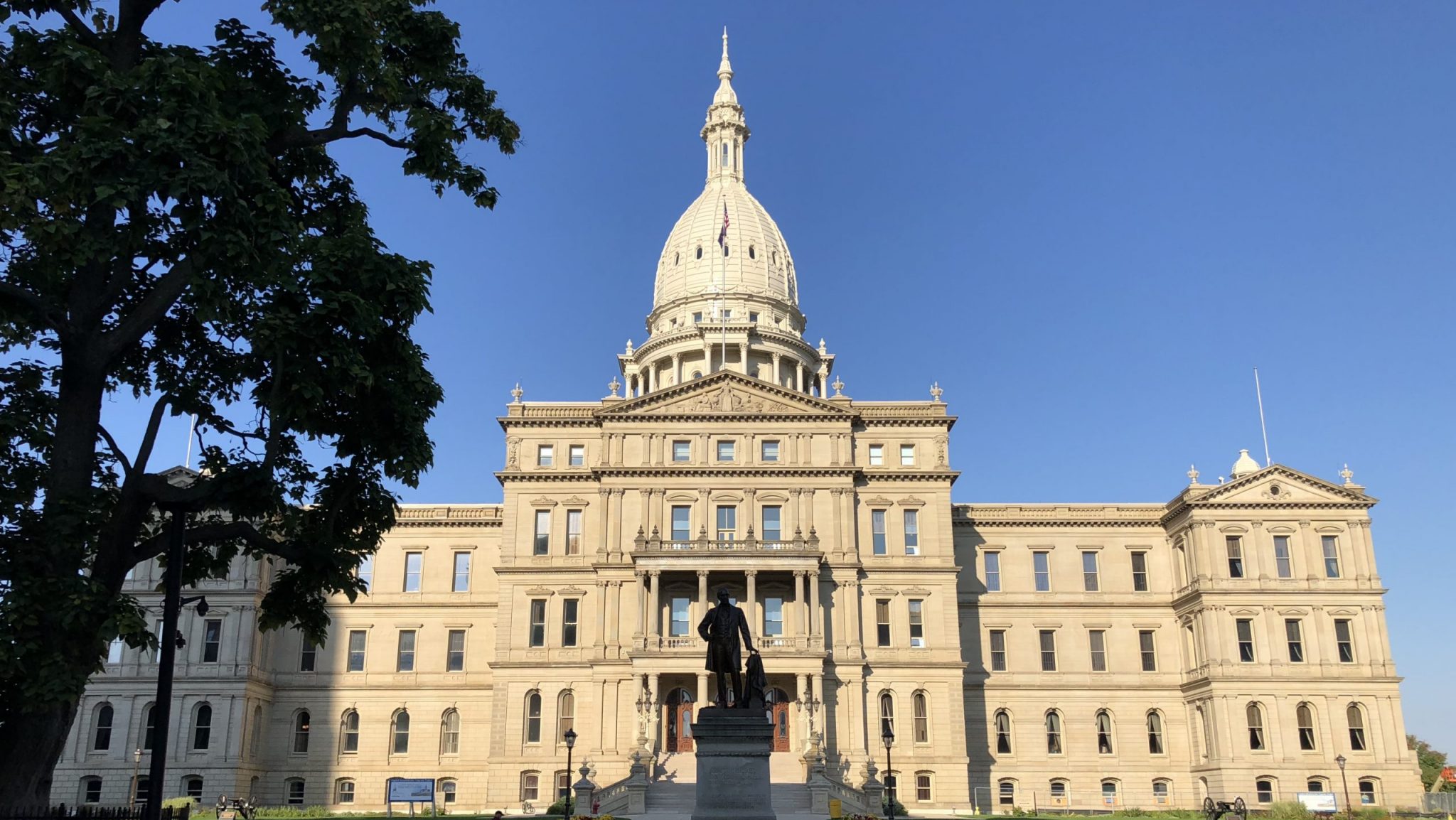Pandemic Has Hurt Government Transparency, Reporters and Watchdogs Say
Detroit News reporter Craig Mauger says he’s been waiting over a year for documents from the state. He says it’s part of a troubling pattern.

Michigan State Capitol building.
Reporters and government watchdogs say the pandemic has made government transparency problems worse in Michigan.
MichMash hosts Cheyna Roth and Jake Neher talk with one reporter about the extensive delays he’s seeing with public records requests.
Subscribe to MichMash on iTunes, Spotify, Google Podcasts, NPR One or wherever you get your podcasts.
Craig Mauger is a state government reporter for The Detroit News based in Lansing. He says he has a request in for state documents related to Michigan nursing homes during the pandemic that he submitted in July 2020 — over a year ago. He still does not have those documents.
He also requested emails from Michigan Department of Health and Human Services Director Elizabeth Hertel from the day she started in that position.
“They told me it would be 15 business days to get the emails from this single day,” says Mauger. “We are now going on 30 business days that has taken them, I still don’t have the documents. So these are the kind of delays that I’m experiencing, and others who do this are experiencing.”
Mauger says it’s a serious issue in a state that has for years scored among the lowest states in the country for government transparency. And he says the problem is only getting worse since the beginning of the pandemic.
“It’s mystifying. And it’s leaving me and, I think, other people that wonder, how long are we going to be dealing with this fallout?” –Craig Mauger, The Detroit News
“We kind of expected that early on in the pandemic,” he says. “State workers were working from home, they had a lot of other important things to deal with that, understandably, could have delayed their ability to provide public records. But now over a year into this, with infections waning significantly, we’re still experiencing the delays. And it’s mystifying. And it’s leaving me and, I think, other people that wonder, how long are we going to be dealing with this fallout?”
Mauger says these are problems that affect everyone in Michigan, not just journalists or people who are more likely to submit requests for public documents under the state’s Freedom of Information Act (FOIA).
How long can it take to get documents through a state-level #FOIA request? I am on day 96 with one of my requests (a request for a single officeholder’s emails over a 6-month period).
I made a timeline. pic.twitter.com/G5yWrMd5la
— Craig Mauger (@CraigDMauger) March 19, 2019
“This is how we uncover stories that change laws and shine light on areas of darkness that we would not get to see,” he says. “And in some ways this goes back to all of the conspiracy theories we’re hearing and all of the misinformation that’s out there in this void of honest and accurate, detailed information. Conspiracy theories can come in and fill the void with stuff we can’t prove or disprove because we don’t have the information.”
Mauger points out that there are no laws in Michigan that require government agencies to hand over documents in a set amount of time. He acknowledges that placing deadlines on agencies is fraught, partly because some small local government departments might have trouble meeting those deadlines with limited resources and limited staff. But he says, although these issues are critical to address, lawmakers have not shown much interest in making them a priority.
More from MichMash:
Michigan Elections Officials Leaving Jobs in High Numbers Amid Threats, Harassment
To Fix Labor Shortage, the Service Industry Needs to Start Humanizing Workers, Restaurant Owner Says
Whitmer Proposes Big Investment in Michigan Parks Amid Longstanding Challenges
K-12 Schools Budget a Historic Balancing of Funding for All Michigan Schools, Proponents Say
Trusted, accurate, up-to-date.
WDET strives to make our journalism accessible to everyone. As a public media institution, we maintain our journalistic integrity through independent support from readers like you. If you value WDET as your source of news, music and conversation, please make a gift today.

